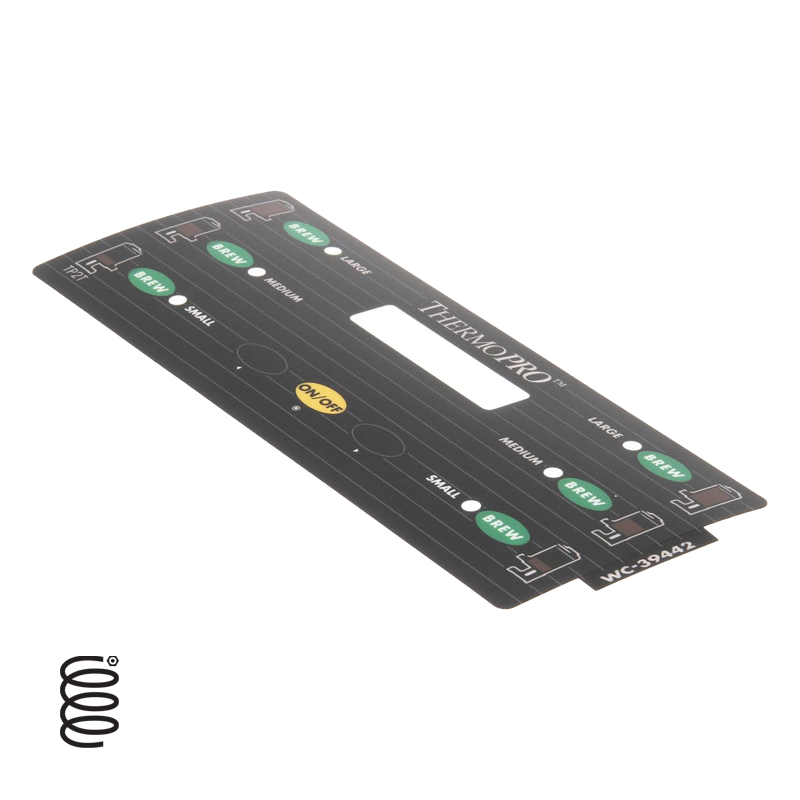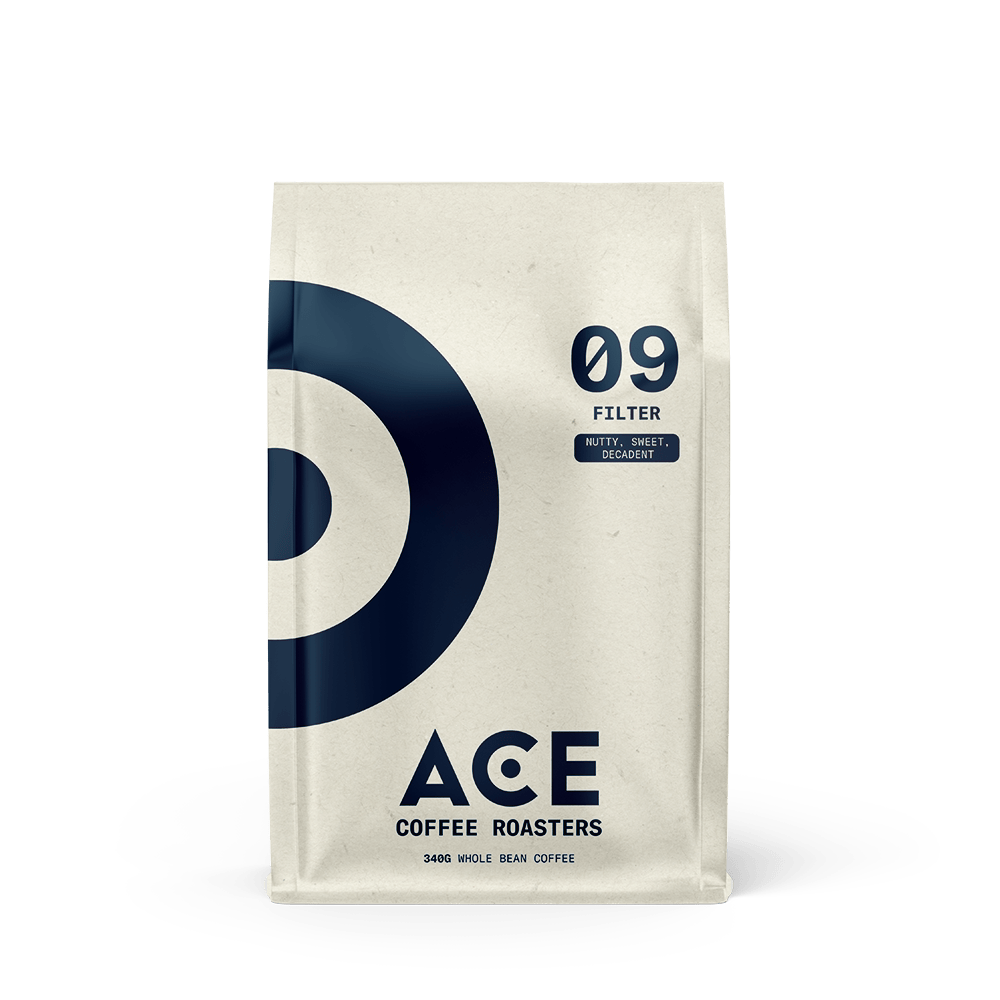Why does lever extraction deliver a richer, deeper, sweeter and softer espresso extraction?
To understand why lever extraction delivers these results, one must first understand some key
fundamentals to espresso coffee extraction and how they impact the lever group throughout the
brewing cycle. Let’s Consider these three fundamental aspects of espresso coffee extraction: Pre-Infusion. Temperature. Brewing & Water Flow.
Pre-Infusion. Lever Espresso machines have a preset amount of water delivery that can be moved through a
typical bed of coffee when The portafilter is locked in to the LEVA group.
The action of drawing the lever down opens up a valve in the group that allows water kept up
between 112°C up to 118°C to be drawn into the brewing chamber from the boiler. ( Some
residential machines do use a Heat Exchanger and those temperatures are going to run closer
to 95°C and in those cases the brewing chamber receives thermal assistance with the
introduction of a small heating element. ) It’s this initial downward action in the first part of the
brewing process when operating a lever that actually provides the pre-infusion to the coffee
bed. There are Varying thoughts of how long the pre-infusion process should be allowed to
endure before the counter action of releasing the lever moves the cycle in to the actual brewing
process where downward pressure is exerted on the coffee bed. Certainly the longer that the
pre-infusion cycle is allowed to stay in contact, the more that you run the risk of over extracting
the coffee.
At CaffeTech Canada We sell a variety of commercial and residential lever extraction machines,
but we do have a philosophy on minimizing the pre-infusion cycle so to stay away from over
extraction. We consulted coffee Roasting professionals ( ACE ) that Also concurred the same
philosophy.
Remember that when we are brewing coffee at a much higher temperature it is therefore, very
critical not to keep pre-infusion with such high temperatures for prolonged periods of times as
there is a greater risk of burning the espresso coffee.
The counter action and release of the lever is then going to move us to the next stage of
extraction and pending what you did in the pre-infusion cycle is it going to significantly vary the
final outcomes of coffee once the extraction process begins.
Temperature. And so we know that coffee entering the brewing chamber on a lever extraction machine, will
enter between 112°C to 118°C. when the pre-infusion starts.
So then what exactly is occurring after the stage when we release the Lever to set the calibrated
spring off to create the brew pressure ?
Firstly, it’s important to note that lever extraction coffee uses massive forged brass groups with
extreme thermal stability in order to maintain temperature. We’ve seen the introduction of
massive groups like the E61 group In order to maintain temperature stability and in some cases
like the LaMarzocco Brewgroup we see the introduction of saturated brew group technology to
achieve similar results. Therefore, we know that temperature stability throughout the brewing
extraction is common knowledge for great brewing results.
Lever groups need to consider temperature stability even far more than there more
contemporary espresso machine designs- and this is because we need to hold the coffee water
in the brew cylinder for at least 38- 45seconds. This is generally the amount of time required to
extract the coffee on a lever machine and during that period of time there exists no assistance of
heat to the group brew chamber. Therefore, during that brewing interval the coffee will need to
brew and extract in the chamber and yet maintain an adequate level of temperature stability to
derive a decent espresso shot.
Although the brew water initially sent into the brewing piston chamber care of the prison fusion
process will range between 112°C to 118°C, The temperature of the water through the brewing
process is closer to between 92°C and 96°C, A temperature more consistent with what we can
expect in conventional machines with more modern brew groups and rotary pumps . This
brewing temperature is further maintained because of the Lever groups mass and construction.
Furthermore it’s getting heat assistance from the boiler , counteracting steam pressure (1.2-1.5
Bar) onto the brewing water throughout the process.
In summary, temperature throughout a lever extraction begins at a higher temperature in the
pre-infusion stage(112°C to 118°C ) and a continual lowering of temperature ( 96°C to 92°C)
during the brewing process - truly a perfect environment for espresso brewing.
Brewing & Water Flow. So once the spring lever is released and the brewing extraction starts, the dispersion screen
releases water from the piston chamber into the portafilter. It’s important to note that most high
quality lever extraction machines come with a deeper portafilter handle ; generally at 53 mm
versus the standard 58 mm group on a pump driven machine. Generally speaking the air
chamber above the coffee bed is much larger allowing for the excess pressure from the spring
release to be absorbed and additional water flow to be received as the coffee becomes agitated
in the portafilter and starts the brewing process . It’s this design to get maximum flow rate and
initially higher pressure ( say between 12-13.5 Bar) That differentiates Leva extraction and
delivers a very heavy body espresso. This initial stage of brewing is where we see more bitter
components of the espresso brew develop.
What then occurs through the next stage of the extraction process ( between 38-43 seconds) is
a counter-play of water temperature slowly decreasing as the spring lever decompresses (
elongates ) and subsequently lowers the pressure exerted on the coffee bed towards the end of
the brewing cycle. All along as the infusion valve remains open and the lever spring is
counteracting with a decreasing water column action (1.2 - 1.5 Bar) forcing the water down onto
the coffee bed as the lever group returns to its resting position.
The Assertion, at least by CaffeTech Canada estimations is that it’s this initial ramping of
pressure when the coffee is less saturated coupled with the initial higher temperature during and
shortly after the pre-infusion cycle that develops a stronger and deeper extraction within the first
10 seconds. Such extraction would never occur on a basic pump driven espresso machines.
What’s also occurring at this time while the infusion valve Is still open during the extraction
process, is that the boiler pressure is also assisting to drive the water pressure/ flow
/temperature in a downward force care of the steam pressure in the boiler - forcing it in the
direction of the coffee bed.
Continuing through the extraction process, and as the temperature lowers and the pressure
decreases you end up with a much Sweeter, thicker and richer cup of espresso coffee. The last
components of the extraction would be much sweeter ( potentially more acidic ) amalgamating
the early components of the extraction for a much more harmonious espresso. At Caffetech
Canada , We further assert that the softening of temperature and pressure at the end of the
cycle when the coffee bed is more agitated would result in a gentler extraction minimizing
astringent flavour compounds during this stage.
Once the final extraction has concluded and the lever has returned back to its resting position
then the the infusion valve would have closed leaving the remaining coffee bed compacted back
into the handle Leaving behind a dry puck. The portafilter at this point could then be removed.
Unlike pump driven machines, where the interruption of the pump finishes the cycle, lever
extraction machines require the user to interact with the volume of coffee required. If volume
accuracy is required then we recommend the use of a weight scale in order to determine the
exact weight desired in your final outcome of coffee. Obviously, this is less important for the
home user and certainly paramount for a commercial coffee bar operation.
Advantages Of Lever Espresso Machines
- Less Expensive To Maintain
- Less Group Maintenance
- Better deeper flavour espresso extraction
- PID
Disadvantages Of Lever Espresso Machines
- Initial Learning curve on use can be challenging
- Some models do draw water from primary boiler ( see comments above)
Caffe Tech Canada Lever Machine Recommendations
With the above information giving us a good overview of Lever machines, Caffe Tech Canada highly recommend that those considering a lever machine, look at one of the following products as excellent choices for producing top quality espresso shots. We have thousands of espresso machines, and hundreds of lever machines, and the choices below never disappoint.
PROFITEC PRO 800 LEVER ESPRESSO MACHINE $4249
Coming in at Number One as Our Top Lever Espresso Machine is the Profitec Pro 800. True to
the quality expected from a German Manufacturer, the Profitec Pro 800 uses a 58 mm Brewing
group and Stainless Steel construction as well as a massive 3.5 Ltr Insulated Copper Boiler for
impressive Steam capacity and uncompromising Temperature Stability. The Pro 800 uses
convection and a Dipper Tube to deliver water to the group chamber in preparation for Lever
Extraction. The Pro 800 Lever utilizes a vibratory pump simply to fill from the optional Water
reservoir and operates with the conventional Lever design from the 1940’s. It’is the most reliable
lever machine on the market as Tested by CaffeTech Canada. Price, quality and consistent
brewing yields put the Pro 800 at Caffetech Canada’s Top choice for lever espresso machines in
2022.
- Solid Construction & Craftsmanship
- Well designed working
- Pour Over Or Plumb Option
- PID Temperature Controlled
- High Quality Steam & Water Valves
- Accessory Kit Includes Bottomless Portafilter
The Profitec Pro 800 Lever (Leva) Espresso Machine: Prosumer Perfection For Espresso
KEY FEATURES: PROFITEC PRO 800 LEVER ESPRESSO MACHINE
- Advanced PID: The PID controller in the Profitec 800 is hidden behind the
drip tray. It allows you to adjust the boiler temperature.
- Professional gauge: The Profitec Pro 800 features a professional gauge that
indicates pressure in the boiler. It is a great feedback tool which lets you better
understand your machine and improve your final results.
- No Burn Steam & Hot Water Wands:
The machine is equipped with no burn steam and hot water wands that can be
manipulated without worrying about scolding your hands. Also, milk doesn't
stick to a dual-walled steam wand as much as to a regular.
- Water Sensor:
Level control cuts the power circuit if water is low, with a microprocessor that
automatically controls the level of the water tank and boiler. A low water level
warning will tell you when you need to refill. Please note: for proper operation,
it is a must to use water with mineral content.
- Plumbed in or Pour over:
The Pro 800 can be run as a pour-over machine using the included 3 liter
water tank or it can be directly plumbed into your water main.
- Stainless Steel Housing:
The Profitec Pro 800 is housed in a highly durable and very beautiful AISI 304
stainless steel case.
View Details
















